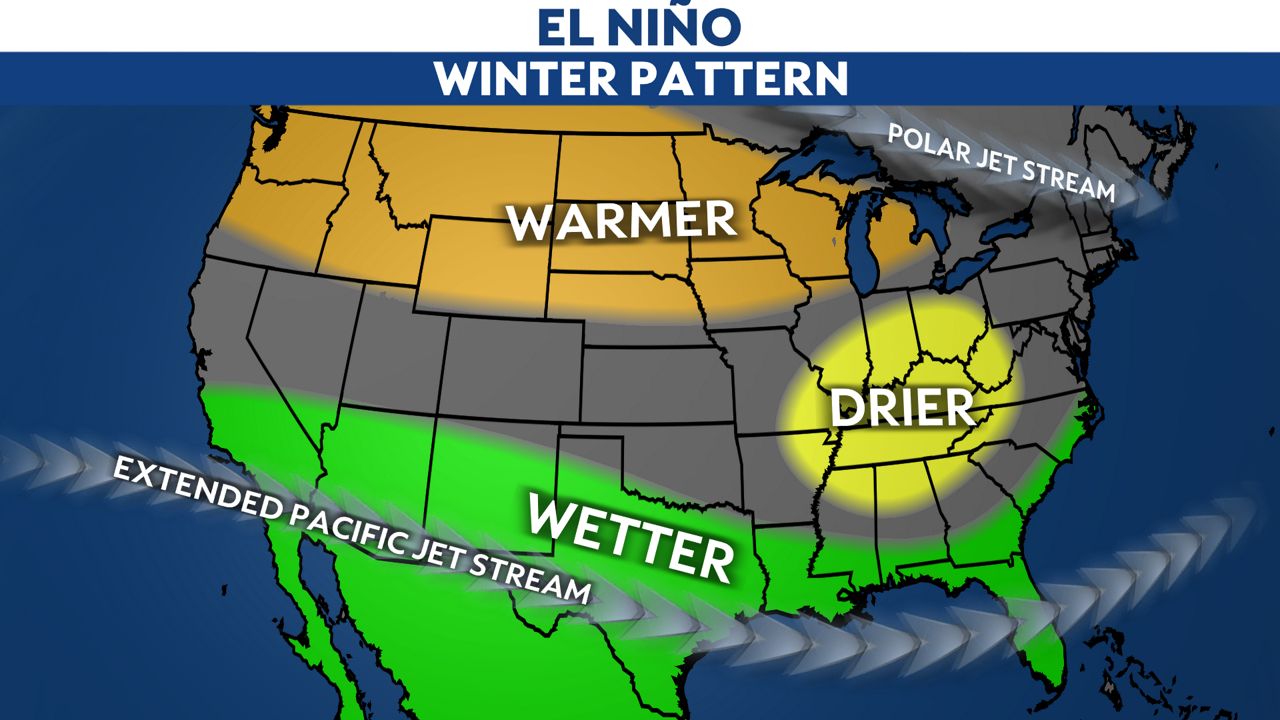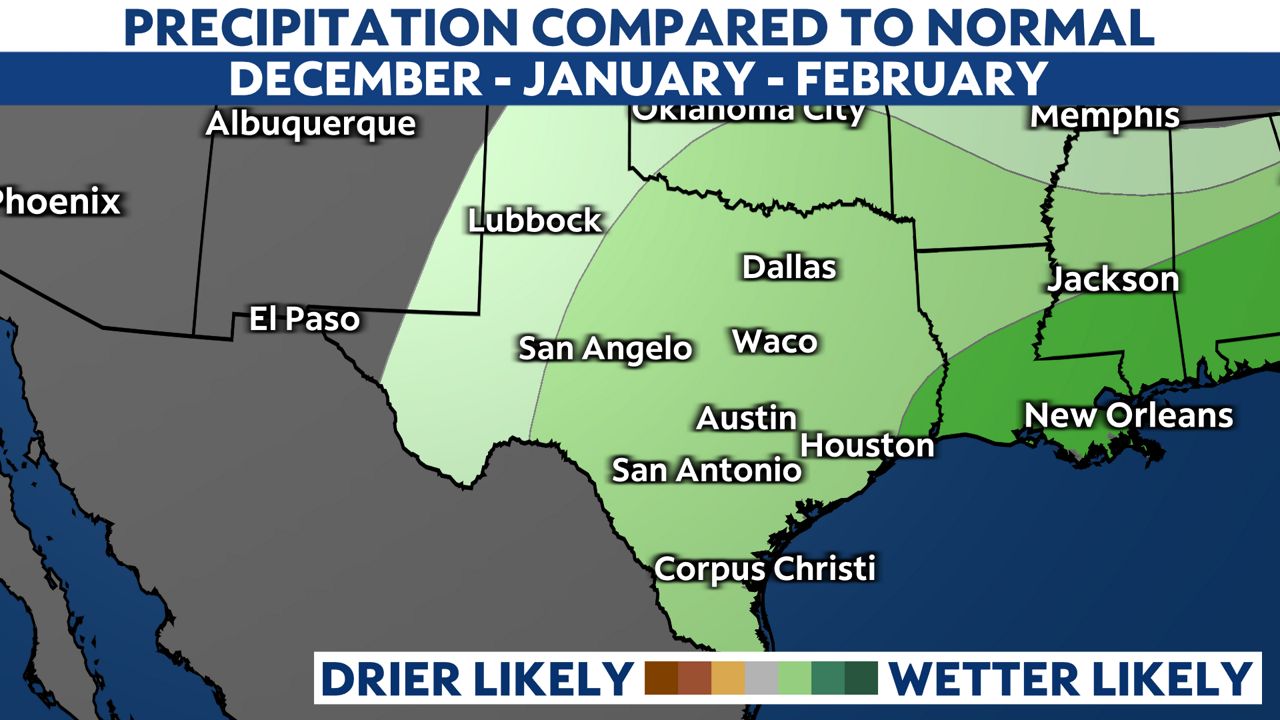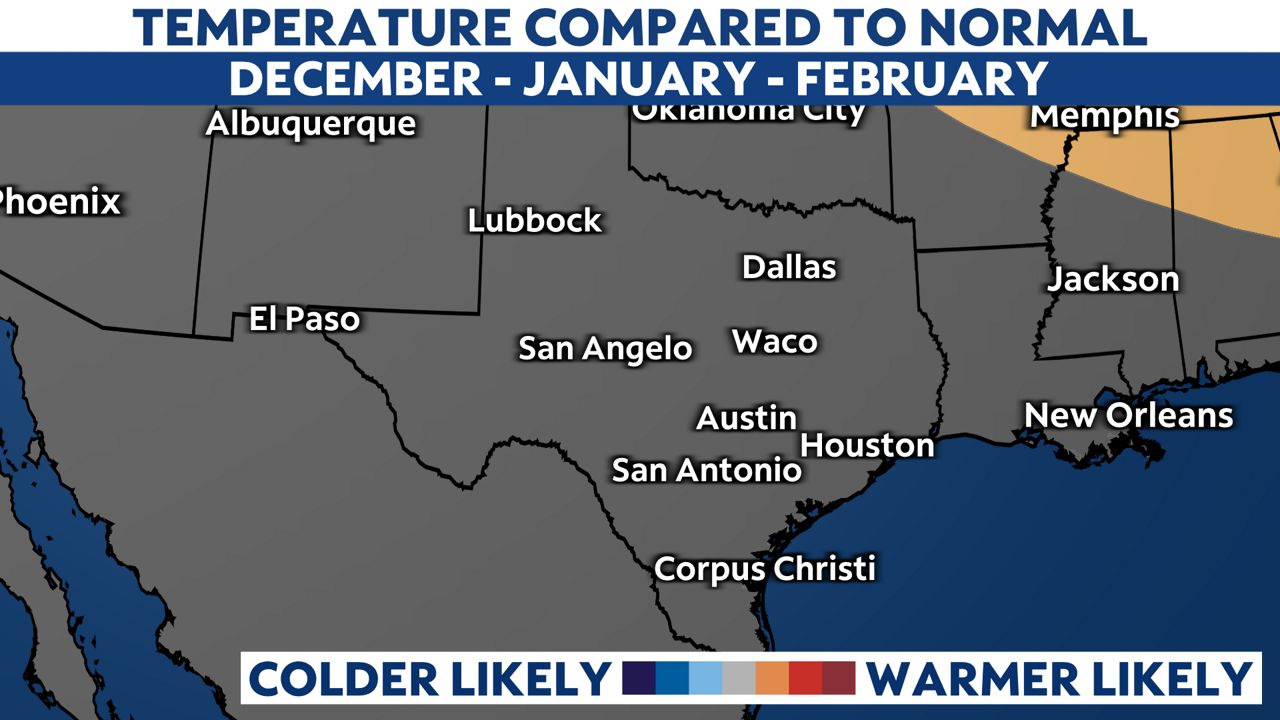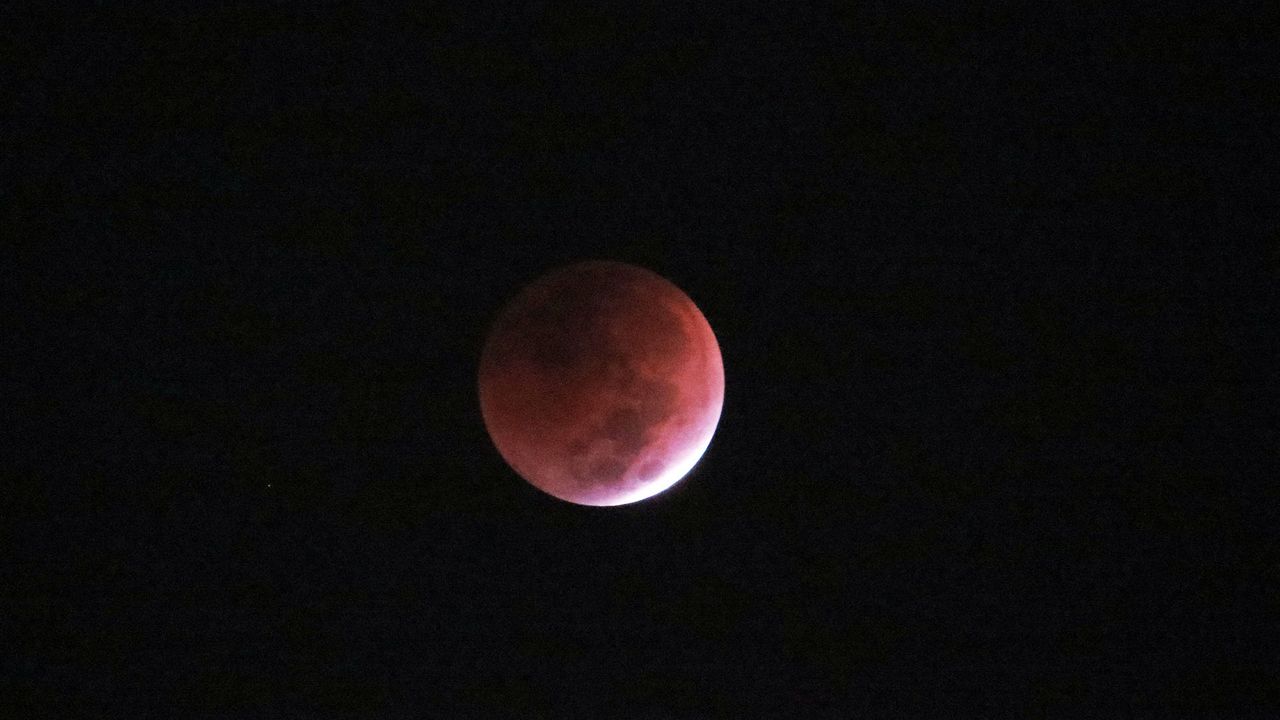The Climate Prediction Center (CPC) has released the 2023-24 winter outlook and keeps Texas under wetter than normal conditions with near-normal temperatures through February.
We’re getting closer to the end of the year and winter, and thanks to the winter outlook from the CPC, we have an even better idea of what winter weather will be like in Texas this season.
First things first, El Niño conditions have returned. Moderate to strong El Niño conditions are occurring in real-time. To be classified as an official El Niño period, five consecutive three-month periods within the Oceanic Nino Index show positive favor.
By the end of October we met and exceeded those standards, therefore there’s a high probability that El Nino conditions hold us through the winter months.
An El Niño winter usually delivers wetter than average conditions across the southern U.S., including Texas.

The new seasonal precipitation and temperature outlooks issued at the end of October by the CPC reflect the typical weather pattern during an El Niño winter.
These outlooks cover meteorological winter, which is December through February.

So with wetter than average conditions expected across Texas through Feb. 2024, it’s likely that drought conditions will improve.
Our soils, vegetation, aquifers, rivers, creeks and lakes could use relief from our long-standing drought. This winter is being classified as a rainy one, so we could receive much needed support to lessen the strain on our hydrologic cycle.
We’ve also been plagued by elevated fire weather the last few years, so a wetter than average season would me fewer available fuels and devastating wildfires.
After recent historic snow and ice events, our natural inclination to hearing this news might come as fear, but extreme winter weather with frozen precipitation is not likely in Texas. This is because the Climate Prediction Center is not calling for a colder than normal season. They are calling for near-normal average temperatures through February.

Even in our coldest viewing area of North Texas during the winter months average temperatures never dip down to freezing, they hold with highs in the upper 50s and lows in the upper 30s, so maintaining at this range ensures frozen precipitation predictions are not favored at this time.
It is worth being noted that there remains low to medium uncertainty in our temperatures projections. That’s because of the present unknowns about our atmospheric steering flow and how it will evolve across the southwest U.S./northwest Mexico as we move deeper into early winter.
We’ll continue to keep you informed if there are any shifts, though changes would be minor and not result in dramatic pattern alterations.
Keep in mind, this is a long-range climate outlook. If there are any bursts of extreme cold in the forecast this winter, we’ll know closer to the event.
So it’s best to always be prepared, and up to date with the latest forecasts here on Spectrum News 1.
Our team of meteorologists dives deep into the science of weather and breaks down timely weather data and information. To view more weather and climate stories, check out our weather blogs section.









